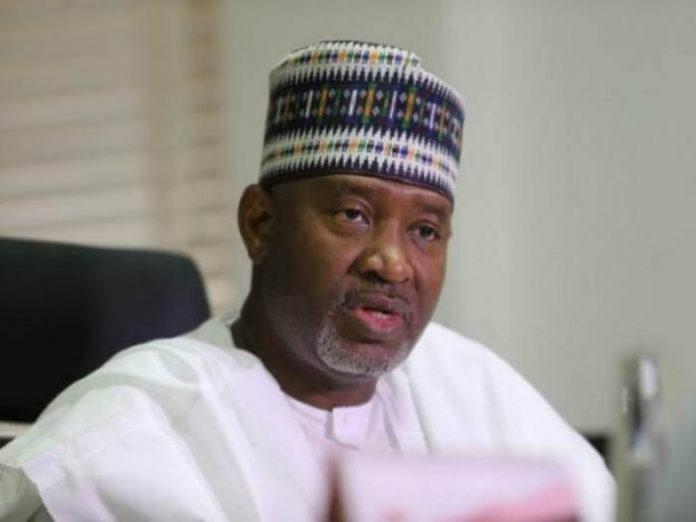International airfares in Nigeria have virtually tripled on account of the blocked $464m belonging to foreign airlines with a one-way economy ticket selling for more than N1.5m, checks by Daily Trust have shown.
As at today, Nigerians now pay higher than what other countries even with longer travel hours pay on major international carriers as stakeholders express dismay over the perceived rip-off of passengers amidst threats by operators to quit Nigeria.
- NIGERIA DAILY: Why Dariye Is Still Seen As The GodFather Of Politics In His State
- Former NFF scribe, Amadu presents 22-point agenda to rescue Nigerian football
The United Arab Emirates (UAE) carrier, Emirates, has said it would suspend all Nigerian flights from September 1 citing difficulty in repatriating its $85m from Nigeria while more airlines are said to be exploring similar moves as their funds remain trapped without access to the foreign exchange to repatriate to their home country.
One of the consequences of the trapped funds is the exorbitant prices of international flight tickets, it was gathered with stakeholders decrying the development, saying flights are not that outrageous in other countries with trapped funds.
Though Nigeria is holding the bulk of foreign airlines’ funds in Africa, other countries with blocked funds as at June 2021 include Zimbabwe – $100million; Algeria – $96 million; Eritrea – $79 million, Ethiopia, $75 million and Ghana, which was not listed by IATA in June but had not allowed airlines to repatriate their earnings due to paucity of foreign exchange.
Checks by Daily Trust on the websites of some international airlines show that an economy ticket for a Lagos-London flight, one of the most lucrative routes for foreign airlines, costs between N1.2m to N1.4m for one way.
Checks on British Airways indicate that the cheapest economy fare on the Lagos-Heathrow route cost $2,698 (over N1.7m at the parallel market rate) where some of the airlines’ source dollars. Lagos-London direct flight is about six hours, 30 minutes. The same fare was around N400,000 at the start of the year.
But on Harare (Zimbabwe) to London direct flight, which is over 10 hours costs $1,669 on the same BA.
Business Class passengers would need over N4 million for a one-way ticket to the UK and over N7m for a return trip.
On Turkish Airlines, a Lagos-London flight costs $3.044; Lagos to New York on Delta costs $4,029 for one way.
Also, the Lagos-Dubai flight advertised on Emirates Airlines’ website is N1,064,141 while Air Peace, a Nigerian carrier, sells the same route for N400,100.
IATA Regional Vice-President, Africa and the Middle East, Kamil Alawadhi had recently said airfares charged by international carriers are three times higher than what is obtained in other countries that do not retain airlines’ revenues.
Industry Expert and the Secretary-General of Aviation Round Table (ART), Group Captain John Ojikutu (retd) lamented that Nigeria is not keeping to the spirit and letter of the Bilateral Air Service Agreement (BASA) where foreign airlines are required to pay royalties for their operations.
He also challenged the aviation industry to account for over $1 billion it earned from passenger service charges (PSC) and earnings by aviation handling companies.
He said, “What has been happening over the years in the Nigerian commercial aviation policies, regulations and administration are nothing but what I call unilateral exploitation of the systems.
“We are going to be the loser if the foreign airlines withdraw their services of flights to our country because about 70 to 80% of our earnings in commercial aviation are from the foreign airlines.
“What will happen further will see Nigerians going to Accra, Cotonou, Lome, etc to connect the flights of these foreign airlines making them hubs over Nigeria.”
Director of Research, Zenith Travels, Mr. Olumide Ohunayo said, “We are being charged the higher rate because we have the highest figure among the debtors. Secondly, we do not have the capacity to reciprocate those routes so the dominant carriers determine the fares.
Aviation Consultant, Babatunde Adeniji said, “I hope the government will respond quicker since it has now escalated before it reaches a breaking point.”
On the allegation of rip-off, he added, “I think we need to have more robust and rigorous investigations on these matters in depth before reaching controversial conclusions and our emphasis should be on the root causes of the problems, how to resolve them, rather than the tendency to demonise foreign carriers while playing victims.”
Aviation workers fear job losses
The National Union of Air Transport Employees (NUATE) in a letter to the Minister of Aviation, Senator Hadi Sirika warned that the consequence of the foreign airlines leaving Nigeria would be catastrophic.
General Secretary of the union, Comrade Ocheme Aba said, “The ugly situation of hundreds of millions of dollars earned by foreign airlines operating into Nigeria, but which they have been unable to repatriate due to Nigeria’s foreign exchange challenges has already been blown out by local and foreign media, bringing colossal collateral damage to Nigeria’s image.
“We feel obliged to mention the threat to the employment and livelihood of thousands of workers of these foreign airlines should there result in further significant reductions, or outright shutdown, of operations of these airlines. We must also mention the concomitant losses (not excluding jobs) that would accrue to several service providers who are dependent on, almost entirely, foreign airlines – ground handling, inflight catering, logistics, aviation security, etc. This, unfortunately, is already visible from the reductions of operations that have come into effect in the past weeks resulting from the impasse.”
President of Aviation Roundtable (ART), Dr. Gbenga Olowo said it is high time Nigeria developed three strong airlines to reduce reliance on foreign airlines for Nigerian travelers and address the
“Government must as a matter of urgency develops its own airlines to reduce the volume of businesses done here. The Nigerian government should be very serious about the issue. The demand for travel is high and when the demand is high, develop three strong airlines.”
Issue would have a reputational effect on Nigeria- Expert
Founder, Centre for the Promotion of Private Enterprise, Dr. Muda Yusuf in a chat with Daily Trust said the issue would have a reputational effect on Nigeria and its business partners, saying investors would now be wary about investing in the country.
He however attributed the challenge to the distortion in Nigeria’s foreign policy regime which he noted is temporary.
He said, “This is a temporary problem. I’m optimistic that at some points this matter would fade off. It is largely a policy problem. The fundamentals of our economy are not as bad as to create this kind of embarrassment for us. This is a distortion created by policy.
“Once we normalize our foreign exchange policy regime. Secondly of course it will create a problem for us as a country. It has a reputational effect on our country. You can imagine the perception this will give. This is a kind of news that travels fast, that airlines are unable to repatriate their funds. That means the investors coming here are not able to take their money out. Nothing can be more negative than that especially for an economy that needs investment.
“So it will affect the perception of our country by foreign investors, it will also affect the perception of those who do business with us. It will disrupt a whole lot of business relationships between Nigeria and their international partners. So it has a very serious impact on our reputation as a country and the business relationships that foreigners or suppliers have with their Nigerian counterparts because anybody doing business in Nigeria now will be extremely cautious.”
Yusuf, a former Director-General of Lagos Chamber of Commerce and Industry (LCCI) advised the Central Bank of Nigeria to abandon the administrative allocation of foreign exchange.
“The CBN should embrace a market approach to the management of our forex. The CBN should stop fixing exchange rate. The E&I window. It should allow the market rate to prevail from that official window. If you allow that, there will be liquidity.”
Minister of Information and Culture, Alhaji Lai Mohammed had told Reporters in Lagos on Monday that relevant authorities are working hard to resolve the issue.
When contacted yesterday, Dr. James Odaudu, the Special Assistant on Public Affairs to the Minister of Aviation Hadi Sirika reiterated Mohammed’s assertion and assured that the Aviation Minister has been making frantic efforts despite that the issue does not fall under his purview.

 Join Daily Trust WhatsApp Community For Quick Access To News and Happenings Around You.
Join Daily Trust WhatsApp Community For Quick Access To News and Happenings Around You.


